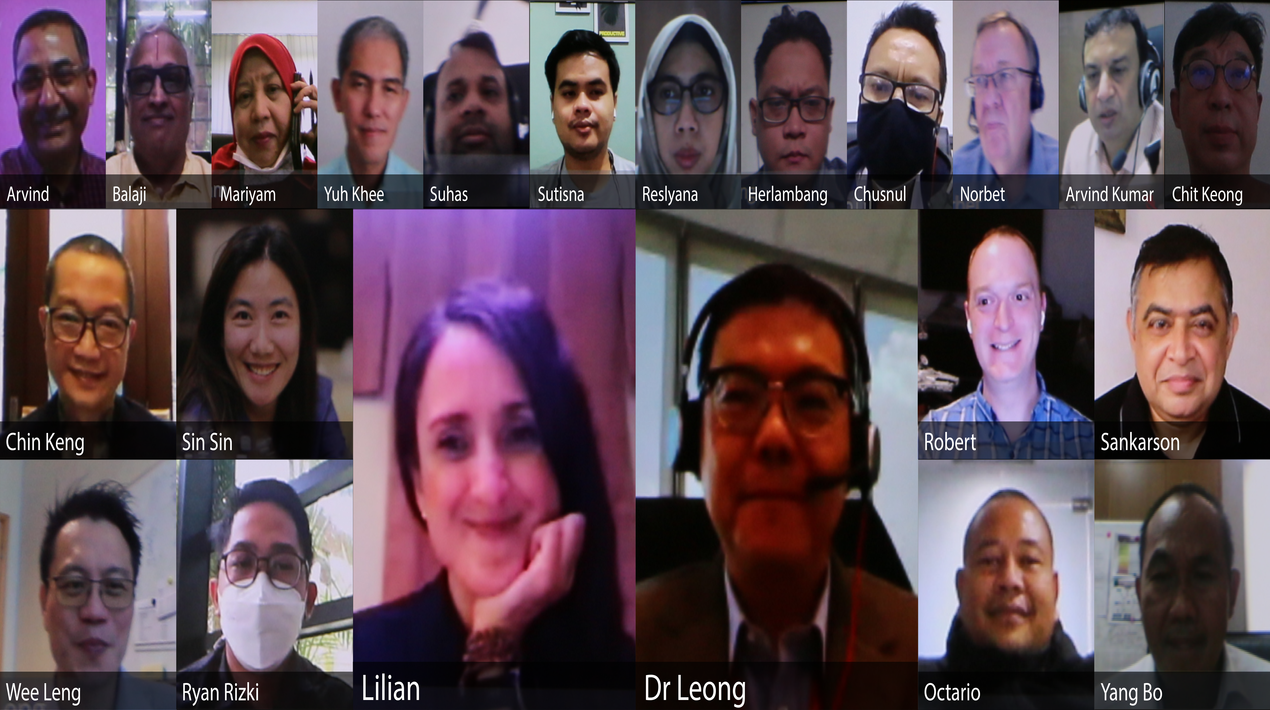
To create efficiency, flexibility, speed and feedback loops required for optimal workflows and innovation, the IT teams have been looking to leverage collaborative technologies and solutions.
While conventional software companies have long relied on traditional DevOps, many organisations are now exploring new practices and innovative ways to be better accommodate a distributed workforce in the new normal.
Such models pose numerous challenges for the IT team in an organisation, not least of which is a lack of clear and specific guidelines for assessing organisational progress. Monitoring, evaluating and learning apart, the collective challenges that organisations across the board face are:
- Scale: rushed scaling can lead to security, privacy and compliance issues
- Security: assuming that responsibility for security and compliance falls on the provider can be a trap
- Integration: complete and optimal system integration is a gargantuan task
- Collaboration: The need for synergistic interaction and a non-siloed approach is a given, but not easily achieved.
The fact of the matter is, organisations need a dedicated team to deliver and operate a platform that can be used by multiple application product teams to scale DevOps practices efficiently. But in aiming for rapid digital transformation there are pitfalls.
One of the downsides of scaling fast is that it can lead to failing fast. The middle ground and the key solution is Platform Ops. It offers value to application teams and applies DevOps practices in implementation and can streamline processes involved in scaling DevOps practice. Crucially, it allows developers to focus on development and firms to focus on their customers – rather than spend time unnecessarily on processes.
This was the focal point of the OpenGovLive! Virtual Insight held on 9 September 2021. This session helped delegates understand the ways to fully grasp the true meaning of “agile infrastructure” or “agile operations” using DevOps and Platform Ops. It also provided information on how organisations can fully utilise DevOps and Platform Ops to meet customer demand quickly and seamlessly.
Finding Partners for Using Platform Ops

To kickstart the session, Mohit Sagar, Group Managing Director and Editor-in-Chief, OpenGov Asia delivered the opening address.
Mohit likened the modern digital landscape to a maze that has a start and an endpoint. However, in every corner, organisations find different technologies – some old, some new and some evolved – thanks to the ever-changing requirements of people, processes and the context. To accommodate these shifts, organisations need to constantly look for better solutions in terms of DevOps and Platform Ops.
The COVID-19 pandemic accelerated digital transformation on an unprecedented scale. While the pandemic posed huge challenges, at the same time, it has transformed society digitally at a global level.
This silver lining brings great rethink, re-imagine and re-invent. The lens through which organisations focusing on problems will determine the solutions they ultimately opt for. Mohit exhorted delegates to explore more current solutions by being agile, maintaining security and creating scalability.
In closing, Mohit emphasised the importance of finding the right partners to create the best citizen experience. Having competent experts who can focus on Dev/Ops, allows organisations to focus on their main tasks and key deliverables.
Technology Insight
The forum next heard from Lilian Tydings, Head of Product Design & User Experience NGINX Product Group at F5 on the dynamics of DevOps and Platform Ops. Their experience shows that most companies or organisations are still in the process of understanding Platform Ops as it is fairly new.
Lilian defines Platform Ops as a way to assess how balanced the dynamics are between the development and operation teams. While the development team focuses on speed and efficiency, the operation team needs to ensure scalability and quality.
Hence, the key is to understand how the two worlds look like, anticipate the possible conflicts and find a way to balance all of those aspects. Technological answers and Platform Ops can be the solutions for the potential conflicts between the development and operation teams.
F5 is trying to understand what real-life scenarios look like so they can provide the relevant solutions. The company is open to interacting with a wide range of organisations to explore how they could work together.
International Case Study

Dr Leong Mun Kew, Director of Graduate Programmes, Chief Artificial Intelligence Practice, Chief Data Science Practice, Institute of Systems Science, at the National University of Singapore was the next speaker who explored the significance of DevOps for businesses.
Dr Mun Kew acknowledged that there was tension between people who were building things and people who were running things. From his experience, the Operation people are comfortable doing what they know best. Meanwhile, the development people have a traditional mindset to get things down in the same manner.
Nonetheless, as the world is changing, including the rapid shifts forced by the COVID-19 pandemic, organisations need to try new ways to find solutions. When trying to adopt new solutions, the process can create added tension between the development and operation teams.
Whenever organisations want to develop new products, they also have to think about operations which are primarily about reliability, scalability, and security.
In the end, Dr Mun Kew emphasised that the tension between the development and the operation team is usually because of a mismatch of expectation and internal pressure. Hence, organisations must create a platform for scalability to deliver material in a faster and more agile way.
Interactive Discussion
After the informative presentations, delegates participated in interactive discussions facilitated by polling questions. This session is designed to provide live-audience interaction, promote engagement, hear real-life experiences and impart professional learning and development for the participants. It is an opportunity for delegates to gain insight from subject matter experts, share their stories and take back strategies that can be implemented in their organisations.
Delegates were first asked what technology problems they are most concerned with. Almost half (47%) were concerned about security while a little more than a quarter (27%) prioritised availability. While 13% were concerned about reliability, the remainder were equally divided (7%) between complexity and scalability.
In the accompanying discussion, a delegate who chose security said he do so as it encompasses availability, integrity and confidentiality. A representative from the IT division felt availability was the most important as the technology should be available all the time without interruption.
From his vantage as a consultant to many companies, Dr Mun Kew felt that security would be companies’ biggest concern as tech experts are comfortable with their tasks but they are afraid of what-if scenarios. While preparing for the worst-case scenario is needed, Dr Mun Kew encouraged everyone to focus on doing their day-to-day operations more efficiently.
The second inquired about the unmet needs of delegates’ organisations. Similar to the previous question, almost half (47%) said that their organisations lacked agility (adapting to changes, balance day-to-day with strategic / long-view). Close to a third (29%) chose innovation (onboarding new tech, team’s complacency) as something that their organisation’s shortcoming. Delegates were equally split (12%) between business continuity (secure work environment, sourcing and retaining talent) and infrastructure (delivery better at scale, budget constraints).

On being queried about the primary issues between Dev and Ops today, one-third (33%) chose collaboration. A little more than one-fourth chose agility as their main issue while a one-fifth (22%) thought their organisations need a platform approach. While 11% and chose automation, the balance 6% felt they need more information about Kubernetes or Container/Microservices.
The final issue delegates were polled on was balancing speed and efficiency with scalability and quality. More than half (56%) said improving collaboration would bring the balance. Delegates were equally divided (17%) between developing new standards and processes and establishing a platform team. 6% said that they are not balancing speed and efficiency with scalability and quality and another 6% said that they have established a platform team.
Conclusion
The Virtual Insight concluded with remarks from Robert Whiteley, General Manager NGINX Product Group at F5. He was eager to clarify that he was not there to be biased about the technology that his company offers but to listen and understand delegates’ perspectives.
Robert was delighted with the interactive discussion with the delegates. He felt it would help his team and he better understand the dynamics in delegates’ organisations as well as identify key areas that F5 can help.
The delegates’ perspective on the importance of collaboration, communication, balance and security, he believed, would be significantly beneficial for F5 in the way they would work with companies going ahead.
Robert invited the delegates to reach out to his team to explore ways they could work together to assist them on their journey.
















